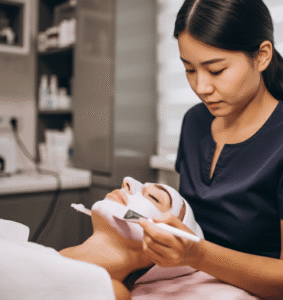Overview
IgA Deficiency is the most common primary immunodeficiency characterized by a significant reduction or complete absence of Immunoglobulin A (IgA) in the blood and mucous membranes. IgA plays a vital role in protecting the body’s mucosal surfaces such as the respiratory and gastrointestinal tracts from infections. In Korea, patients with IgA deficiency receive diagnosis and care at immunology and allergy centers that focus on infection prevention, symptom management, and monitoring for autoimmune complications.
What is IgA Deficiency?
IgA Deficiency occurs when the immune system produces little or no IgA antibodies. Despite this, levels of other immunoglobulins like IgG and IgM usually remain normal. Many individuals with IgA deficiency have no symptoms, but others may experience frequent infections or autoimmune diseases due to impaired mucosal immunity.
Symptoms
- Frequent respiratory infections (sinusitis, bronchitis, pneumonia)
- Recurrent gastrointestinal infections and chronic diarrhea
- Allergic conditions such as asthma, eczema, and allergic rhinitis
- Autoimmune disorders including thyroiditis and lupus
- Fatigue and malaise in some cases
Causes
- Genetic factors affecting B-cell development and IgA production
- Familial inheritance patterns with variable expression
- Unknown environmental triggers that may affect immune regulation
Risk Factors
- Family history of IgA deficiency or other immunodeficiencies
- Presence of autoimmune diseases
- Childhood history of recurrent infections
Complications
- Chronic respiratory infections that may lead to lung damage
- Development of autoimmune diseases
- Risk of severe allergic reactions to blood products containing IgA
- Rare progression to more severe combined immunodeficiency
Prevention
- Avoiding exposure to infectious agents
- Keeping up with recommended vaccinations, except some live vaccines when contraindicated
- Early treatment of infections to prevent complications
Treatment Options in Korea
Diagnosis
- Blood tests measuring serum IgA, IgG, and IgM levels
- Evaluation of immune response to vaccinations
- Screening for autoimmune markers when indicated
Medical Treatments
- Prompt antibiotic therapy for bacterial infections
- Immunizations to reduce risk of infections
- Avoidance of IgA-containing blood products in patients with allergy risk
- No specific IgA replacement therapy currently available
Surgical or Advanced Therapies
- No surgical interventions are indicated for IgA deficiency
Rehabilitation and Support
- Regular follow-up with immunologists to monitor health status
- Patient education on infection prevention and management
- Supportive care for autoimmune or allergic conditions when present
Top Hospitals or Clinics in Korea
- Seoul National University Hospital – Department of Immunology and Allergy
- Samsung Medical Center – Allergy and Clinical Immunology Clinic
- Asan Medical Center – Immunology Division
- Yonsei Severance Hospital – Immunology and Autoimmune Disease Center













